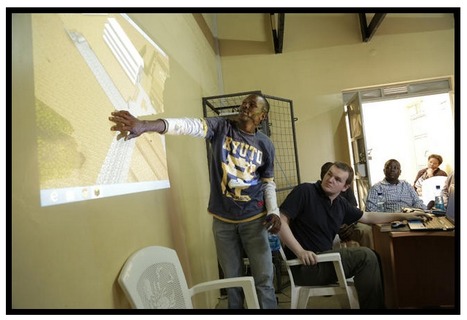To Design A More
Sustainable World
Cities are using the game to get more people involved in solving urban challenges—and finding new, innovative ideas from unlikely sources.
If you're going to communicate effectively with young people, it helps to do it in a language and format they understand. Like Minecraft, for instance. One hundred million people already play the Swedish-born game, and even those who haven't played can soon appreciate its build-it-with-blocks vernacular.
UN-Habitat, the UN's agency for sustainable urban development, has a program to improve public space in developing world cities. It helps build new parks, squares, sports fields, and sidewalks, and promotes the value of public space to local people. Recently, it's used Minecraft to engage young people.
"It's really important to involve the local community as much as possible. You get better outcomes in terms of design and maintenance, and ensuring the space is used," says Pontus Westerberg, who leads the project from his base in Nairobi, Kenya. "When you have public meetings, what tends to happen is that you get older people. They have the time, the interest, and experience. It's very difficult to get young people to come to meetings and speak up."
In about 15 countries, the agency has organized workshops where kids redesign spaces on Minecraft, then present their ideas to local architects, politicians, and businesspeople. "On the first day, the young people are really shy," Westerberg says. "But three days of building in Minecraft, they're really standing up for their ideas, arguing for why a particular feature should be there. It's nice to see the change in confidence."
The agency contacted Mojang, the Microsoft-owned company behind the game, in 2012. It has since donated licenses and helped fundraise some of the actual building work. The projects, run from a group called Block by Block, are in Haiti, Kenya, Somalia, Nigeria, the Philippines, Bangladesh, Nepal and elsewhere.
Via Aurélien BADET, Corinne Chauffrut Werner , Lockall



 Your new post is loading...
Your new post is loading...







